SUMMARY
This is AI generated summarization, which may have errors. For context, always refer to the full article.
![[Newsstand] The paradoxical pope](https://www.rappler.com/tachyon/2023/01/paradoxical-pope-january-4-2022.jpg)
Benedict XVI was a pope of paradoxes: the progressive peritus in Vatican II turned conservative gatekeeper of Council teaching, the extraordinarily gifted theologian who limited debate and silenced Catholic academics, above all the guardian of reform whose startling resignation reformed the Roman Catholic Church in the most fundamental way.
His death at the age of 95 was truly the end of an era: He is the last of the popes (after John XXIII, Paul VI, John Paul I, and John Paul II) directly involved in the Second Vatican Council, which convened from 1962 to 1965. Pope Francis, who was still a Jesuit scholastic at the time, was ordained a priest only in 1969.
It is also possible that, if the pope who succeeds Pope Francis comes from the Global South again, Benedict may be the last European to serve as pope for some time to come. It is almost certain that the age of European dominance in the Church ended with Benedict’s death. Or to be more precise, the dominance of the thinking that understands the Church as a European institution, highlighted by Joseph Cardinal Ratzinger’s second reason for choosing Benedict as his papal name—to honor the great St. Benedict, he said, who “evokes the Christian roots of Europe.”
But another generation to which Benedict belongs, that of the men and women who were scandalized by the worldwide youth protests of 1968 and channeled their shock and concern into conservative movements in culture and politics and religion, remains influential.
Old habits
In the immediate aftermath of his death, heightened emotions and old habits led to some exaggerated claims.
Jean-Pierre Denis, publisher of the international editions of the La Croix newspaper, began his thoughtful appreciation of Benedict’s considerable intellectual legacy by describing him as “the last great European intellectual of the 20th century” – a remarkable claim, considering that other influential thinkers who made their mark in the last century, including one with whom Benedict engaged in an important dialogue, Jurgen Habermas, remain very much alive.
It is also remarkable that a scholar of the highest quality served as pope; perhaps this is all that Denis meant, that Benedict was a theologian of great influence and consequence, who earned the esteem of other scholars even outside the discipline of theology.
Michael Sean Winters, writing insightfully for the National Catholic Reporter, described Benedict’s decision to resign as “a great act of demystification” of the papal office (objectively true) but also as “an implicit, unspoken rebuke” to Pope, now Saint, John Paul II and his decision to remain in office “despite the incapacities of old age” (an interpretation, not a fact, which discounts Benedict’s own well-considered reason).
It is possible to learn from the example of others without the learning necessarily being an act of criticism, much less a rebuke. It is true that Benedict did not want to wither in office as John Paul II did. As he himself said, in his Latin message announcing his resignation: “I have come to the certainty that my strengths, due to advanced age, are no longer suitable for the proper exercise of the Petrine ministry.” But that was his own charism, or special gift: The humility to step aside. His predecessor’s was altogether different: The gift to suffer in public. As Benedict said in his homily at John Paul II’s funeral mass: “he increasingly entered into the communion of Christ’s sufferings … And in this very communion with the suffering Lord, tirelessly and with renewed intensity, he proclaimed the gospel, the mystery of that love which goes to the end.”
Describing the resignation as a rebuke is an old habit of journalism, storifying conflict even when none exists.
New York Times columnist Ross Douthat, in a piece that characteristically offered an alternative history of the modern Church, rued that Benedict had “conducted a postpapacy of ambiguous gestures in response to a Vatican that had been delivered, by the mysteries of God’s providence, to his longtime foes.” This is an old habit of partisans and ideologues, framing reality as a constant struggle. But Douthat makes it sound as though Benedict’s retirement (at almost 10 years, longer than his papacy) was spent conducting these ambiguous gestures, instead of the almost uninterrupted life of prayer, contemplation – and unequivocal support for Pope Francis – that it mainly was.
New media
As a journalist and a Catholic, I have always been fascinated by Benedict’s understanding of the way the media works.
I understand that other people helped in the drafting of, say, his messages for World Communications Day, but comparing his messages with those of Pope Francis, to give an example, immediately shows that their thinking, their personalities, are reflected in the words they choose to release under their own name.
Many of Benedict’s WCD messages centered on what he called the “digital continent,” the new “agora” created by digital technology. In 2009, he touched on an essential feature of social media networks like Facebook. “The concept of friendship has enjoyed a renewed prominence in the vocabulary of the new digital social networks that have emerged in the last few years … We should be careful … never to trivialize the concept or the experience of friendship.”
In 2011, he noted that the new digital technologies “allow people to meet each other beyond the confines of space and of their own culture,” and then asked: “Who is my ‘neighbor’ in this new world?” In 2013, in his last message, he warned us: “Believers are increasingly aware that, unless the Good News is made known also in the digital world, it may be absent in the experience of many people for whom this existential space is important.”
These insights deepen my disappointment at his alternative history of Vatican II, because it is confoundingly media-centric. In 2013, addressing Roman clergy, Benedict asserted that “there was the Council of the Fathers – the real Council – but there was also the Council of the media. It was almost a Council apart, and the world perceived the Council through the latter, through the media.” He added: “For the media, the Council was a political struggle, a power struggle between different trends int he Church.”
But in fact, the Council was also a power struggle. As insider accounts prove, there was a “fierce battle” (Time’s Robert Blair Kaiser), a duel between the majority of the bishops and the reactionary Cardinal Alfredo Ottaviani and his allies (peddling “papalist nonsense,” the peritus Yves Congar wrote in his diary). Sometimes, conflict does exist, and journalists do right to report on it.
True legacy
Where does this paradoxical pope’s true legacy lie?
While he has been criticized for his own handling of clerical sexual abuse cases when he was Archbishop of Munich, and continues to be criticized for his predecessor’s inaction, he acted decisively when he was head of the Congregation for Doctrine of the Faith. Thomas Reese, the Jesuit editor who was forced to resign from America magazine because of Benedict, wrote: “When his congregation was assigned abuse cases, the disciplinarian tendencies that led him to police theologians allowed him to cut through canonical niceties to expel hundreds, perhaps thousands, of abusers from the priesthood. His response was never perfect, but he did understand and deal with the problem quicker than any other Vatican official, including John Paul.” When he was pope, he removed an abusive religious founder from the ministry, and met with victims of abuse.
His writings will continue to inspire many. His Introduction to Christianity, first published in 1968, remains a model of clarity; his many books, his three encyclicals, his Jesus trilogy (written when he was already pope), will continue to draw new readers (and old ones ready for rereading). He had the teacher’s gift for explaining even the most complicated of subjects. It should come as no surprise that he was the man in charge of John Paul’s project to publish the Catechism of the Catholic Church. “The fact that after an era of very strong theological and ecclesial debates and tensions, within a few years, that is, already by 1992, the work came to fruition in a largely convincing way has something miraculous about it,” wrote his former spokesman, Federico Lombardi SJ.
Finally, his assertion of what he called the “hermeneutic of continuity and reform” will for a long time be heard differently, by those who prefer continuity and by those who seek reform of and in the Church, but his decision to resign the papacy, the first such instance in 600 years, could only have been possible because he followed that hermeneutic to the very end. He believed in both; he could resign because the Church allows reform, and he could resign in full confidence because the Church guarantees continuity.
Truly a pope of paradoxes. – Rappler.com
Veteran journalist John Nery is a Rappler columnist, editorial consultant, and program host. “In the Public Square” airs on Rappler social media platforms every Wednesday at 8 pm.
Add a comment
How does this make you feel?
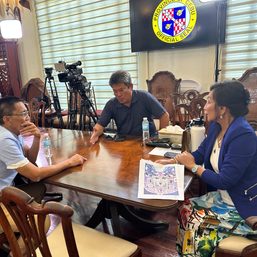
![[OPINION] On divorce and Filipino values](https://www.rappler.com/tachyon/2024/04/divorce-filipino-values-april-24-2024.jpg?resize=257%2C257&crop_strategy=attention)
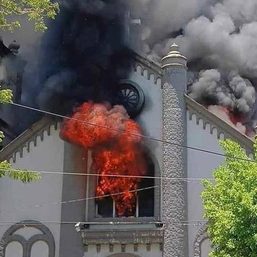
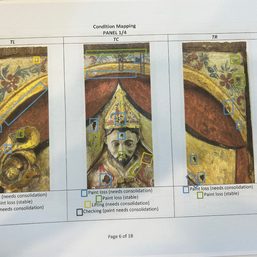
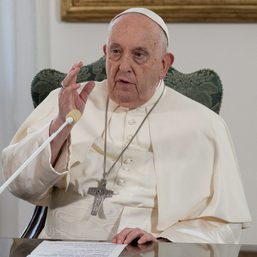


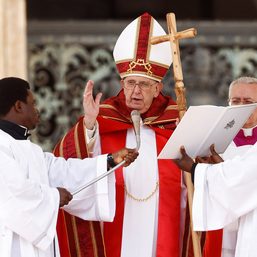
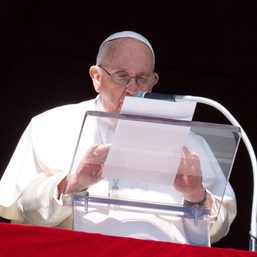
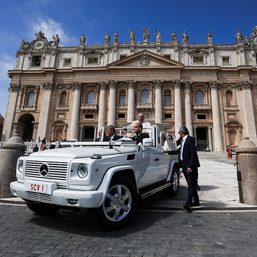



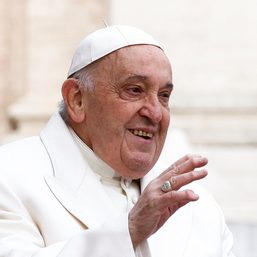
There are no comments yet. Add your comment to start the conversation.